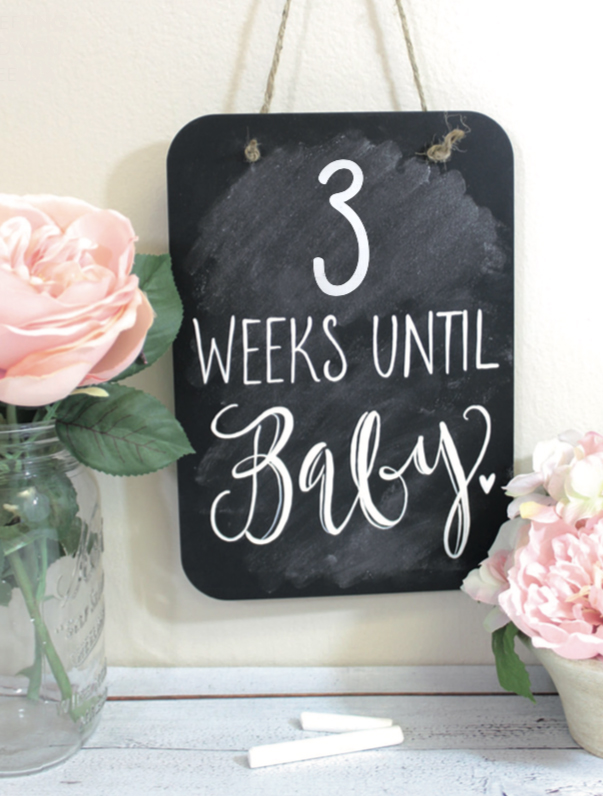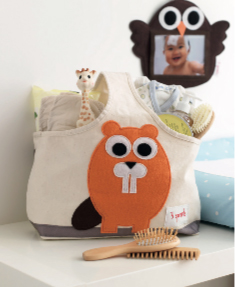
It’s the final countdown and very soon you’ll be meeting your baby. How should you handle the last few weeks?
So you’ve made it to 37 weeks and counting? Congratulations. The end of that long journey from thin blue line to delivery room is in sight. But as any woman who’s been through it will tell you, those last weeks are rarely much fun physically. So what’s happening to your body? And what sort of preparation should you be doing in advance of the Big Day?
Last-minute changes
Your body is being flooded with hormones getting your body ready for birth and motherhood; because even if you can’t quite believe it at the moment, this baby really is going to come out.
Unfortunately, that usually means you’re pretty uncomfortable. The baby puts on weight quite dramatically at this stage, so you’re larger and slower than ever. You can find it difficult to get comfortable sleeping – especially if you’re having to pee every few minutes; and as the levels of relaxin hormone mount up in your system to help your pelvis open, ligaments may be tender and easily pulled. You should feel a bit better when your baby moves down and ‘engages’, not least because, at last, the heartburn that may have plagued you should die down. And if your breasts start leaking a little milk, or you have the
painless ‘practice’ contractions known
as Braxton Hicks, don’t be disconcerted.
“It’s all a sign of your baby coming,” says
antenatal teacher Lydia Warren. “There
isn’t much we can do to alleviate the
discomforts, because they’re the effect
of the hormones doing their job; but
remember why your body’s doing this!”

The hormones are also affecting the way you feel. The infamous ‘baby brain’ that many women experience can really accelerate around now, because the sky-high levels of progesterone in your system act as a tranquilliser. If you’re lucky, they’ll also help you feel more relaxed about the impending birth. And you may even find yourself – often to your own surprise, if you’ve never been a particularly domestic person before – wanting to ‘nest’ and nurture as you rev up emotionally for motherhood.
Listen to your body
However you’re feeling, don’t beat yourself up about it: even you’re feeling wiped out, as many women are. We all know someone who worked until the day she gave birth but you may be very different. By this stage in pregnancy your body is focused on putting the final touches on a full-term baby along with maintaining that baby’s life-support system. It’s an enormous achievement on a physical level, so give yourself some credit and cut yourself some slack. It’s undeniably difficult to do so if you are used to being in charge and in control: but in all honesty, it’s not the last time you’ll have to compromise in the next few years, so look at it as preparation both for birth and for parenthood.
Obviously, you may still have to keep going but if so, see if you can work from home more, or rearrange your journey so you’re out of the bustle of commuting hours. When you’re not at work, or if you’re now off for the duration, try to sleep – or at least rest – as much as you can. It may feel a bit too self-indulgent, especially if you’ve got things you ‘should’ be getting on with; but again, it’s going to be, shall we say, some time before your next lie-in, so look at it as banking those hours with your feet up against the inevitable deficit to come.
And if you need more reasons for a nap, remind yourself that the better- rested you are now the better you’ll be able to cope with the demands of new parenthood. You’ll have to look after someone else soon enough. “Look after yourself and nurture yourself; eat well and do try to relax,” urges Jane Munro of the Royal College of Midwives.
Listen to what your body is telling you about your baby as well. Babies born after 37 weeks qualify as full-term, and if you go into labour now, nobody will be surprised; but there are also, sadly, things that can still go wrong. Get help if you notice any change in your baby’s regular pattern of movements – a sudden increase as well as a decrease,” urges Elizabeth Hutton, chief executive of charity Count the Kicks. “Think of a baby in a Moses basket; you’d call a doctor if they started suddenly moving frantically or became lethargic. Trust your instincts if you feel something’s not ‘right’ – and go on trusting them right to the end of your pregnancy.” Report any bleeding you might experience, too – and also any ‘leaking’ of fluid, even if it’s only a trickle. It may not herald immediate labour but if your amniotic fluid does leak out, it can leave you at risk of infection.
Doing your prep
All being well, it’s time to prepare: logistically, physically and emotionally!
Make sure you’ve got things ready for the baby and make a checklist of equipment (see our website for helpful lists). Experiment to make sure you know how to use anything you’ve bought, like pushchairs; the sight of new parents in the hospital car park squabbling over just how to fit the car seat is all too common. Practise the hospital run (find out where the car park is!) and make sure you’ve got a list of everyone who’ll want a text or email after the birth, so that you can let them all know with one press of a button and leave yourself free to concentrate on your newborn.
Physically, this is the time to keep practising birth positions and breathing. Also, prepare for birth in other ways. A birth plan is a checklist of the way you’d like your birth to go – but be flexible, as with any kind of birth things can change unexpectedly, leaving your carefully rehearsed yoga poses redundant in the face of medical intervention.
“Knowledge is definitely the antidote to fear, even though it can be scary to acquire,” says Warren. “You do make better decisions if you know what the possibilities are.” If you’re aware of what can happen, and the implications of different choices at each juncture, you can have some say over the situations where things aren’t absolutely cut- and-dried (for instance, if you have to decide over whether to move straight to a caesarean in the event of ‘failure to progress’ or you’d like more time in labour). “Think of it as a toolkit of information,” Warren suggests. “You don’t know which tool you’re going to use but it’s a whole range of options, if you have to decide on the hop.”
With that toolkit, you’ll also know about the circumstances where really there isn’t a choice about intervention (if you have a placental abruption, or a transverse baby that never turns, a Caesarean is going to be your only route). In fact, finding out a bit more about Caesareans is probably one of most important things you can do at this stage. They’re often left out of any preparation and considered an option of last resort. In reality, they’re the birth experience of one in four women in the UK- and no, you’re not a failure if you have one. Do a bit of reading (see ’s website bbabymagazine.co.uk) and also tuck a soft blanket or muslin into bed with you for a few nights so that if you do have a Caesarean, your baby can be wrapped in something soft that smells of you if you can’t hold her immaediately.
Finally, it’s important to talk things through with your partner. “Check you are happy with discussions about the birth plan,” says Munro. “But talk about what happens after the birth too. Agree about what you want to do about visitors and how much time you want to yourselves after the birth.” Warren says. Don’t assume that you’ll be one of those women who are up and around immediately afterwards, she adds. “After the birth you’re recovering – it’s not an illness but the most straightforward birth is still huge and there are no prizes for running around for the first fortnight.” So plan to take it as easy as you need to for those first few weeks.
The beginning, not the end
You’re packed and ready, your partner is primed for the hospital dash, you’re as well-informed as you’re ever likely to be; what next? “The birth of your baby is probably one of the most extraordinary days of your life,” says Munro. But it’s only the start of a much bigger enterprise. Pregnancy is nearly at an end: say hello to parenthood.

Baby essentials checklist
Although you can get an emergency delivery of nappies and muslins if you really need them early, you do need to make sure you’ve got things ready for the baby! Most probably you’ve been shopping for some time now, but do a checklist just in case: for instance, do you have a room thermometer, baby thermometer and baby monitor (even if they don’t seem essential at the moment, you may feel rather differently in a few weeks’ time when you’re suddenly in charge of a whole tiny human)? You may want to wash your lovely new baby clothes and bedding in non-biological detergent too, to make sure they’re as kind as possible to your baby’s sensitive skin.
